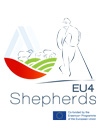Ornithology
|
Course title: |
Ornithology |
|
|
Course code: |
RZORN |
|
|
ECTS: |
3 |
|
|
In-class hours |
Lectures: |
15 |
|
Laboratory work/Tutorials: |
15 |
|
|
Self-preparation hours |
Practical training: |
- |
|
Other: |
45 |
|
|
Total hours: |
75 |
|
|
Language: |
English |
|
|
Study cycle: |
Bachelor, Master |
|
|
Semester: |
Winter & Summer |
|
|
Faculty: |
Faculty of Plant Protection and Agriecology |
|
|
Name of the lecturer(s): |
Assoc. Prof. Tatyana Bileva, PhD |
|
|
Mode of delivery: |
Face-to-face, distance learning |
|
|
Prerequisites: |
Students studying or graduated in Biological sciences |
|
|
Learning outcomes of the course unit: |
Ornithology conducts research and provides undergraduate and graduate education on the birds of the world and special emphasis on Bulgarian ornithofauna. Research topics include species limits and species diversity, evolution, geography, morphology, conservation, ecology, and behavior. Without knowledge of ornithology, classification and geographic distribution of birds is impossible to study and determine their relevance. |
|
|
Course contents: |
Lectures Introduction to birds. Bird flight and other means of locomotion. 1. The Geography of birds. 2. Digestive system: food and feeding habitats. 3. Urinary system, salt, glands and osmoregulation. 4. Circulatory system and Respiratory system. 5. Nervous system: brain and senses. 6. Vocal communication. 7. Territorial and colonial behavior. 8. Mating systems, avian reproduction, anatomy and the bird egg. 9. Avian reproduction: nests, clutch size, incubation and hatching. 10. Parental care. |
|
|
Recommended or required reading: |
Current Ornithology, Springer, 2010 Zoology, Miller-Harley, 10 th editition, 2016, The Mc Graw-Hill Companies; Zoology, Maria-Dolores Garcia, 2012, ISBN 978-953-51-0360-8; DOI: 10.5772/2212;. Integrated principles of Zoology, 14 edition, Hickman et al., 2008, www.mhhe.com Outlines of General Zoology, 2010, www.worldLibrary.net; The principles of Applied Zoology, Robert Arnold Wardle, 1929, Longmans, Green and Co. |
|
|
Planned learning activities and teaching methods: |
Monological explanation (lecture, presentation,briefing, tutorials), Dialogue methods(conversation,discussion). Lectures and seminars are conducted according to generally accepted requirements, maximum use of available technics (multimedia). Practical exercises included fieldwork independent work by zoological material, theses and binoculars. |
|
|
Assessment methods and criteria: |
Exercises evaluation and written exam. The current assessment is based on practical exam and summarizing tests on the lecture material. The rating is a six-point scale and a collection of practical and theoretical exams. |
|
 - Събития по случай 80-я юбилей на АУ
- Събития по случай 80-я юбилей на АУ











